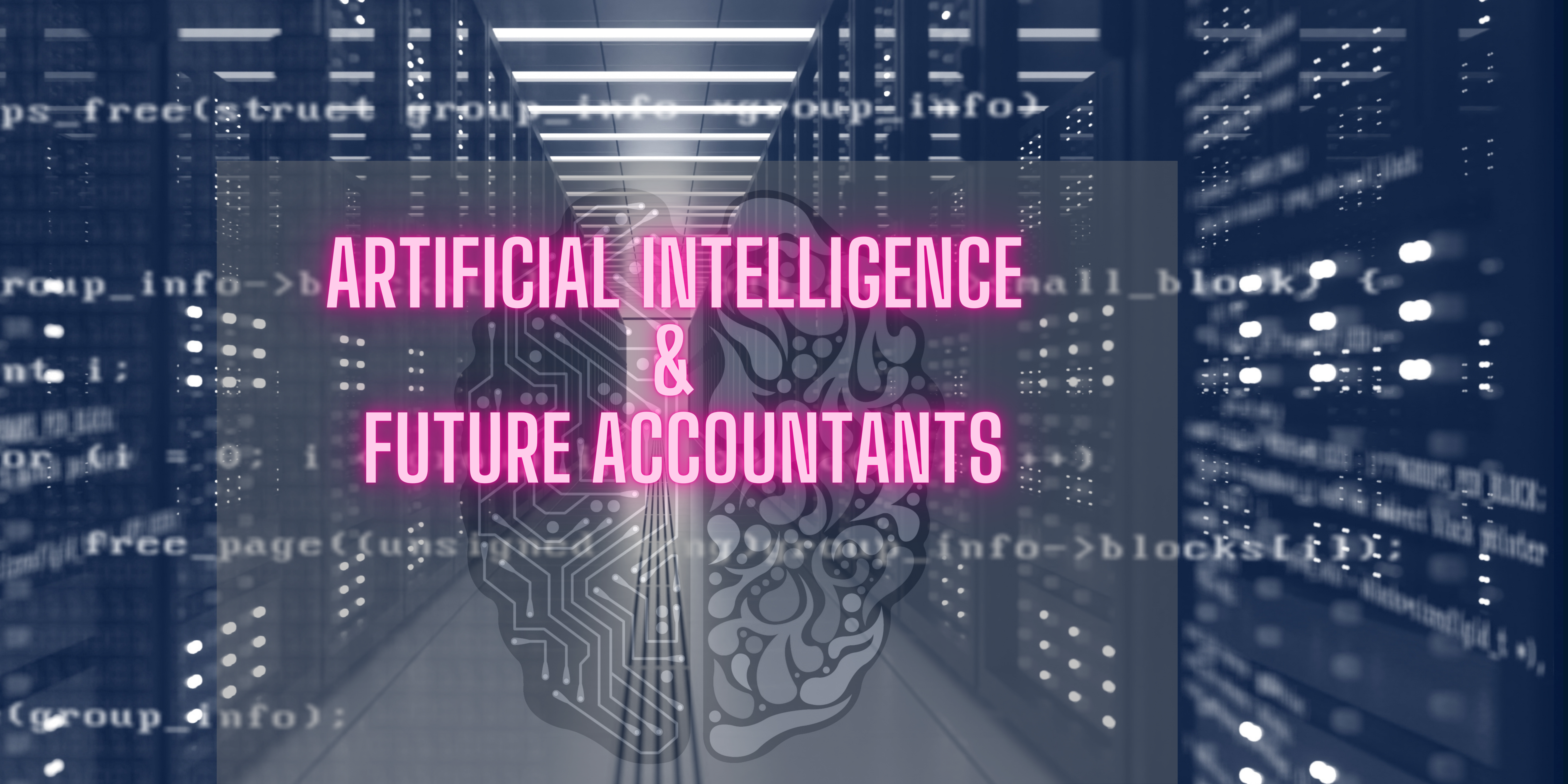The Influence of Artificial Intelligence on the Accountancy Profession: Exploring opportunities and advantages

By Min-Khen Tan and Tai-Seng Wong
15 May 2023
The Overview of AI
The rapid development of artificial intelligence (AI) has been extraordinary and is showing no signs of slowing down. The advancement of AI is being propelled by progress in deep learning and the field of big data science (Stancheva-Todorova, 2018). Over the past few years, AI has significantly transformed various industries and fundamentally changed human relationships with technology. Meanwhile, AI applications have certainly influenced some job professions and will replace some of their job tasks in the near future. The accountancy profession is no exception. In this article, we’ll explore how AI has reshaped the accounting industry and the potential it offers to practitioners.
AI contribution to the revolution of workforce
AI has generated enormous economic and productivity improvements (Mansor, 2021). McKinsey’s research reveals that 50 percent of the work time in Malaysia is dedicated to repetitive tasks that could be easily automated (Koh & Manuel, 2020). AI systems could replace and perform routine tasks more quickly and accurately than humans can (Stancheva-Todorova, 2018). For instance, the Faculty of Economics and Administration at Universiti Malaya indicated that approximately 40.1 percent of jobs in Malaysia face a high risk of automation within the next two decades, and automation is expected to impact around 57 percent of the current workforce (Periasamy, 2023).
AI Automation for routine accounting tasks
The accounting profession is reportedly at the top of the hit list for job obsolescence because of AI automation (Nagarajah, 2016). The usage of AI can be applied to numerous accounting tasks, including bookkeeping, tax preparation, auditing, and securities trading (Lee & Tajudeen, 2020). Machine algorithms can gather, sort, and organize enormous amounts of data more quickly and efficiently than any human accountant. Therefore, this provides accountants with extra time to focus on strategies and value-added performance, such as consulting, analysis, and more comprehensive financial counseling, while continuing to increase the accessibility and accuracy of their bookkeeping and expanding the range of services they provide to clients (Johnson, 2023).
AI and accountants in the future
Practitioners advise that the collaboration between AI and the accounting profession creates all kinds of optimistic possibilities for generating valuable and critical insights that could enhance business productivity. The head of ACCA Malaysia, David Chin, mentioned that the position of an accountant has changed over time. They are no longer merely number crunchers, but businesses rely on accountants for strategic advice on compliance and cost-saving guidance (Nagarajah, 2016). Thus, the role of accountants will entail the responsibility of overseeing and supervising AI systems, alongside the automation of certain tasks within their domain (ICAEW Volunteers, 2023). In addition, accountants will be required to possess proficiency in both technology and business acumen as they analyze data from emerging sources such as social media posts, receipts, and emails, enabling them to make more informed decisions concerning their clients’ financial matters (ICAEW Volunteers, 2023).
Despite the potential advantages of AI in the accounting industry, it also poses several challenges. One of the biggest concerns is the possibility of job losses, as AI automation replaces many of the repetitive tasks currently performed by accountants (Johnson, 2023). Accountants may need to acquire new skills, such as data analysis and strategic consulting, to remain relevant in the industry. In addition, the use of AI raises ethical and legal concerns, particularly around data privacy and the risk of bias in decision-making. Accountants must ensure that they are using AI in a responsible and ethical manner, considering the potential consequences for their clients and stakeholders. (ICAEW Volunteers,2023). As AI continues to advance and become more integrated into the accounting industry, it is essential that accountants stay informed about the latest developments and continue to develop their skills to adapt to these changes.
Moreover, the integration of AI in accounting may require significant investments in technology, software, and infrastructure, which may be a barrier to entry for smaller accounting firms. The implementation of AI systems also requires a significant amount of data, which must be accurate and up-to-date to ensure the effectiveness of the AI system. This means that accountants must also ensure that they have the necessary data management and analysis skills to support the use of AI in their work (Gould, 2021). Finally, AI systems are only as effective as the data they are trained on, and this may lead to biases in decision-making if the data used to train the AI systems is not diverse or representative of the population (Shimamoto, 2018) Therefore, it is crucial that accountants have a deep understanding of the data they are working with and are aware of potential biases that may arise in the use of AI systems.
Conclusion
In conclusion, the above highlights how the rapid development of artificial intelligence (AI) has transformed various industries and fundamentally changed human relationships with technology. The accountancy profession is no exception to this trend. AI has generated enormous economic and productivity improvements, and it can automate repetitive tasks, enhance data processing, and support difficult decisions. However, the integration of AI in accounting may pose several challenges, such as job losses, ethical and legal concerns, and significant investments in technology, software, and infrastructure. Accountants must ensure they are using AI in a responsible and ethical manner and stay informed about the latest developments to adapt to these changes. By embracing AI technology and collaborating with it, accountants may create new opportunities, promote innovation, and add more value to businesses and stakeholders.
References
Gould, S. (2021). Data and the future-fit accountant. International Federation of Accountants. https://www.ifac.org/knowledge-gateway/preparing-future-ready-professionals/discussion/data-and-future-fit-accountant.
ICAEW Volunteers. (2023, February 23). What is the impact of AI and automation in the job market. https://volunteer.icaew.com/article/-what-is-the-impact-of-ai-and-automation-in-the-job-market.
Johnson, J. (2023). How AI and automation technology can Help Accountants. https://www.business.com/articles/ai-and-accounting/
Koh, E. H., & Manuel, N. (2020). Automation and adaptability: How Malaysia can navigate the future of work. McKinsey & Company. https://www.mckinsey.com/featured-insights/asia-pacific/automation-and-adaptability-how-malaysia-can-navigate-the-future-of-work.
Lee, C. S., & Tajudeen, F. P. (2020). Usage and impact of artificial intelligence on accounting: evidence from Malaysian organisations. Asian Journal of Business and Accounting, 13(1), 213-239. DOI: https://doi.org/10.22452/ajba.vol13no1.8
Mansor, D. (2021). How Malaysia can navigate its future economy with AI. Microsoft Malaysia News Center. https://news.microsoft.com/en-my/2021/08/30/how-malaysia-can-navigate-its-future-economy-with-ai/
Nagarajah, E. (2016) What does automation impact on accounting profession? Accounting Today. https://www.pwc.com/my/en/assets/press/1608-accountants-today-automation-impact-on-accounting-profession.pdf.
Periasamy, P. (2023, May 5). Protect workforce from A.I.. New Strait Times. https://www.nst.com.my/opinion/letters/2023/05/905840/protect-workforce-ai#:~:text=A%20study%20by%20Universiti%20Malaya’s,in%20the%20next%20two%20decades%22.
Shimamoto, D. C. (2018). Why accountants must embrace machine learning. International Federation of Accountants. https://www.ifac.org/knowledge-gateway/preparing-future-ready-professionals/discussion/why-accountants-must-embrace-machine-learning.
StanchevaTodorova, E, P. (2018). How artificial intelligence is challenging accounting profession. Journal of International Scientific Publicaitons. 12, 126-141.
Authors’ Profile & Contacts
Mr. Tan Min Khen is an Approved HRDF Trainer and Certified Alibaba Trainer. He is currently an Applied E-commerce Lecturer at the Faculty of Business and Finance, Universiti Tunku Abdul Rahman, Kampar Campus. To contact him, email: tanmk@utar.edu.my
Mr. Wong Tai Seng is an Approved HRDF Trainer. He is currently a Tax Lecturer at the Faculty of Business and Finance, Universiti Tunku Abdul Rahman, Kampar Campus. He is a Member of the Chartered Tax Institute of Malaysia and a fellow member of the Association of Chartered Certified Accountants (ACCA). To contact him, email: wongts@utar.edu.my


